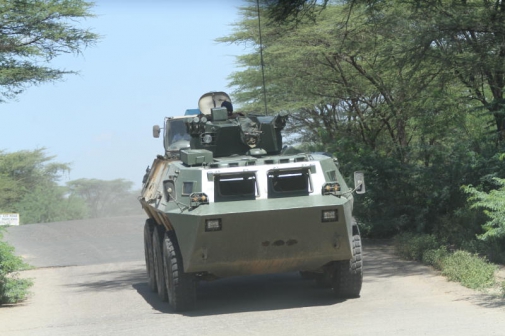×
The Standard e-Paper
Home To Bold Columnists

A military tanker used by KDF for patrol in Loruk, Baringo County on December 16, 2014 Photo: Kipsang Joseph
The Kenya Defence Forces (Amendment) Act allows deployment of the military to handle internal security matters that should ordinarily be the work of the National Police Service.